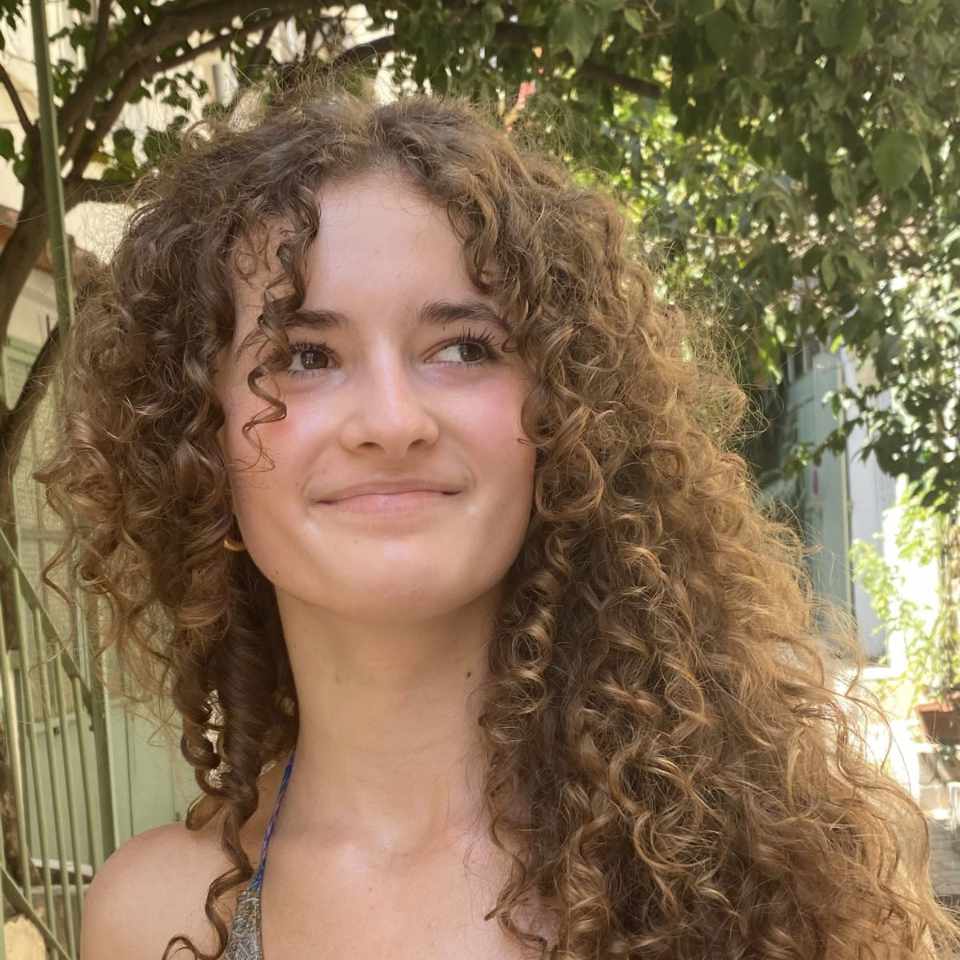Recently, I had the honor to interview Dr. Michelle Goddard, a counseling psychologist from the United States who has been working at the International School Düsseldorf for a little over a year now as a well-being and mental health counselor.
Check out the full interview below and let me know what you think in the comments!
Julia:
Since stress management has become increasingly important due to the complexities of modern life, in your opinion, what are the main factors behind that development?
Dr. Goddard:
Well, I think that people are becoming more aware of the ways that mental and physical health are really and truly integrated, which I think is a good thing. I think there’s also an increased awareness of mental health and the need to be be protective of your mental health so that you can have good physical health and that you can be successful and productive. I often think of mental health as, I think of the Maslow hierarchy of needs. I think of mental health as being on the basic part. You need to have some of your basic needs met, and you also need to have mental health needs met, emotional needs met in order to be successful. I think that’s part of the drive towards this management of stress. I think, it is about increased awareness and about promotion from psychological organizations. And so I think that’s the part of the drive behind why we’re more aware. And I think COVID had something to do with it, too. I think the COVID generation, people became more aware of the ways that stress can impact them and the need for social engagement, and they feel a sense of social isolation. I think that also impacted people’s realization that there needs to be maybe an increased focus on stress management.
Julia:
Yes, thank you so much for your answer. That’s quite insightful. Now moving on to another important topic, which is test anxiety. What are three ways students can regulate their nervous system, reduce stress, and specifically cope with test anxiety?
Dr. Goddard:
Well, so one of the easiest and fastest way to regulate your nervous system is to use breathing strategies, because what happens is that students are experiencing what psychologists typically refer to as a fight or flight response. And so what that means is that when they are in a testing situation, their brain is reacting as if they are in actual danger. And so that was really good for us. It was very productive when we were evolving. We might actually have to fight danger. We might have to flee from danger. And so our brain might react as if there’s a tiger in the room, and it gets our bodies ready to fight or to flee. And so you might have an increased heart rate, or you might start to feel sweaty or shaky. And you have all of these nervous system responses to stress, to anxiety. But the reality is that a math test is not a tiger in the room. You’ve got to give a signal to your brain that you are not actually in physical danger. One of the easiest and fastest ways to do that is to use a breathing strategy. One of the ones that I like the most is called box breathing.
Box breathing is really easy to do in any situation. I like it because you can do it when you’re standing up, you could do it when you’re sitting down, you could do it in the middle of a class, and it’s easy and simple. What it is, is it’s just monitoring your breath and inhaling for four seconds deeply, slowing down your breathing, and then exhaling for four seconds. And you can imagine it going along like a box, inhaling and exhaling. And it’s really just a way to regulate and slow the breathing down, because when we’re anxious, our breathing sometimes becomes quicker and shallower. And then that’s what can send a signal to our brain that we’re in danger. But if we slow our breathing down, then we automatically just signal our brain that we’re not in danger. And that helps. It’s like a cascade of effects where our bodies react then more calmly, which is what we need if we’re trying to focus and have our brains focus on a math exam, we want that fear part of our brain to calm down and let us focus. So breathing is one way. But in general, I recommend that students really practice that on a regular basis, because if you’re trying to do it for the first time, when you’re anxious, it won’t work. You need to practice that.
The second way that I recommend is regular exercise. Exercise is medicine. Exercise is really important for physical and mental health. When people regularly exercise, then that helps them to have both good mental and physical fitness. It doesn’t have to be something strenuous. It can be something as easy as a walk.
The third thing that I recommend is that students really focus on sleep because in order to be able to manage things calmly and successfully, you really do need to have sleep. Sleep is what helps prepare your brain. It helps with learning, and it helps with memorization. We call it memory consolidation in psychology. When you sleep, that’s when memories are consolidated. If you’re having test anxiety, if you know that you have good sleep, then you’re able to learn more effectively and efficiently and remember things, and then that can help your anxiety. Those are three quick and easy ways to try, or not necessarily easy, but three important ways to help.
So prioritizing is super important. And then the other thing that I would recommend to new IB students is that consistency is hugely important. So studying every day, even small amounts, are very important. So even if you do 10 or 15 or 20 minutes a day, that’s better than doing nothing. And so the consistency across time, that’s how students are successful.
Julia:
Thank you so much for sharing your insights. Yes, staying calm and staying on track is quite important during the IB diploma, which brings me to my next question, which is, what advice would you give to upcoming IB students on how to balance their schoolwork and mental health?
Dr. Goddard:
Well, I think I’ve done this exercise a few times with students, but there’s this exercise where you have one bucket, and your bucket represents 24 hours in your day. And you have to fill in all the important things into your bucket. And so what I think is important is to think about what are my big rocks? My big rocks need to go in first. So that’s taking care of my health, making sure I get enough sleep. And then my priorities, what do I really need to prioritize in a day? Those are the big rocks. And if you put the big rocks in first, then you put in maybe the little pebbles in next. And so the little pebbles would be answering emails, or it might be doing smaller projects that need to be done. And then you can put in the fun things, which would be the sand. So it would be things like playing games or going on to social media. So if you put in the big rocks and then the pebbles and then the sand, you can fit everything into the bucket. But if you imagine it in reverse, if you put in a huge layer of sand and then you try and figure how to put in your big rocks, and then you try and figure out how to put in your pebbles, it won’t work, it won’t fit.
Julia:
That’s quite useful to know. Great visualization. Now to my last question. What is one thing about psychology that drew you in, and what made you decide to become a counseling psychologist?
Dr. Goddard:
My journey has been very interesting. But I started out, I wasn’t quite certain what I wanted to do when I was young. I went into my bachelor’s degree, and I took my first psychology courses and love the field. I really thought I wanted to go for a PhD in developmental psychology and do something more with policy and things like that. But then I decided I wasn’t quite certain, and I thought maybe I’d be interested in clinical work. And so after my bachelor’s degree, I worked in a hospital setting, and then I worked in a community agency setting. And I realized that I truly loved doing counseling and clinical work. And so, fortunately, one of the agencies that I was community mental health agency that I worked at was able to reimburse my master’s degree. And so I went back and I started to work on a master’s degree in mental health counseling. And so I finished that up. But then I realized that I really had a passion for psychology and wanted to have a broader scope of practice. And so that’s why I decided to go into the field of counseling psychology so that then I would be able to be licensed to assess and diagnose and treat mental health conditions.
So in the United States, I worked more in clinical settings where I was doing therapy, like one-on-one types of therapy or group therapy. I worked with adolescents and children in different settings. But then when we moved here to Germany, I saw that this position was available in the school. And although it didn’t quite fit my background, it was very similar because what they were looking for was someone who had a mental health and well-being background that could work with adolescents. And so I think I have a unique skillset, and I’m hoping that it’s a skillset that can broaden and help the team serve the students’ needs, particularly well-being and mental health needs.
Julia:
Thank you so much for joining me on this interview and sharing your valuable advice and thoughts. I really appreciate your insights on this topic which is so important.
Dr. Goddard:
Thank you.
Interview with Dr. Michelle Goddard, September 10, 2024.

